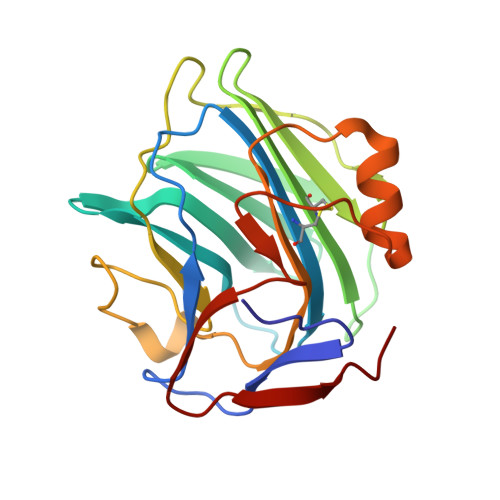Structural basis of ligand specificity in the human pentraxins, C-reactive protein and serum amyloid P component.
Mikolajek, H., Kolstoe, S.E., Pye, V.E., Mangione, P., Pepys, M.B., Wood, S.P.(2011) J Mol Recognit 24: 371-377
- PubMed: 21360619
- DOI: https://doi.org/10.1002/jmr.1090
- Primary Citation of Related Structures:
3KQR, 3L2Y - PubMed Abstract:
The normal physiological roles of the phylogenetically conserved human plasma proteins C-reactive protein (CRP) and serum amyloid P component (SAP) are not known. Novel drugs targeting their ligand specificities are in clinical development as both proteins have significant pathophysiological effects, SAP in promoting amyloidosis and CRP in exacerbating ischemic injury. Both proteins bind to phosphoethanolamine and we show here that, under physiological conditions, phosphoethanolamine is bound with higher affinity by human SAP than by human CRP. An explanation is provided by X-ray crystal structures that show SAP residue Tyr74 allowing additional hydrophobic protein-ligand interactions compared with the equivalent Thr76 of CRP. Docking simulations show many more low energy positions for phosphoethanolamine bound by CRP than by SAP and are consistent with the crystallographic and functional binding results. These fundamental observations on structure-activity relationships will aid the design of improved pentraxin targeting drugs.
Organizational Affiliation:
Laboratory of Protein Crystallography, Acute Phase Proteins, Division of Medicine, Royal Free Campus, University College London Medical School, Rowland Hill Street, London NW3 2PF, UK.

















